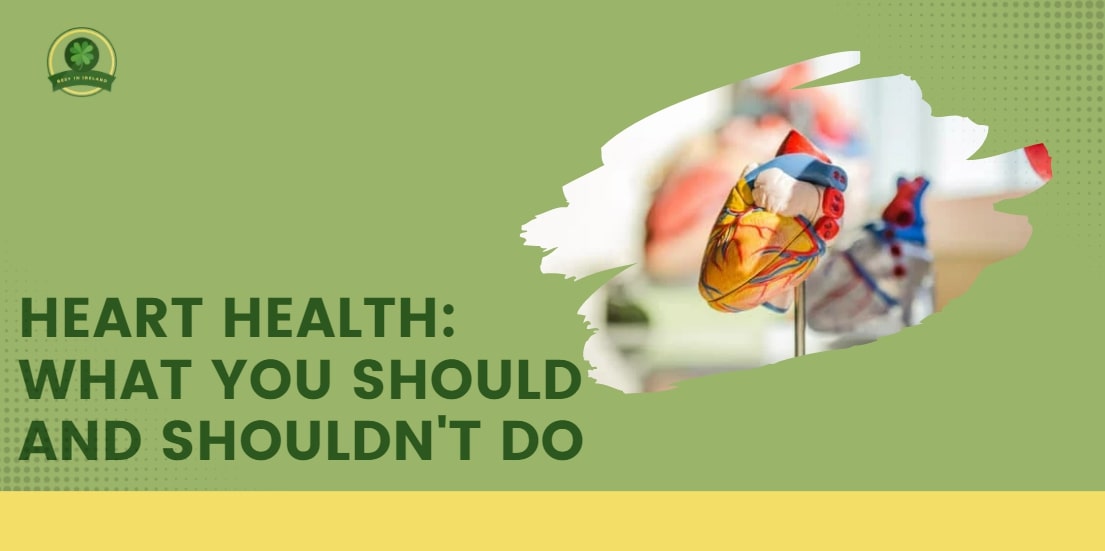Heart Health: What You Should and Shouldn’t Do
The heart is one of the major organs of the body; thus, proper care of it is a must!
The question is, what are you doing to keep it healthy? On the contrary, are you doing things that damage your heart?
Know a couple of things you should and shouldn’t do for better heart health in this article!
What you shouldn’t do
1. Eat foods that are high in saturated fat

Saturated fat raises your level of bad cholesterol, or LDL cholesterol, which ups your chances of getting heart diseases and stroke, according to Medline Plus.
Foods high in saturated fat include bacon, red meat, dairy products like butter, whole milk, and ice cream, mayonnaise, and more.
However, don’t just focus on these foods themselves. Try to watch out for dishes that contain ingredients high in saturated fat.
For instance, you might think that eating a salad is good for you. But if it’s loaded with mayonnaise or other cream-based salad dressings, then it’s not as healthy as you think it is.
2. Get less than 8 hours of sleep
For a lot of people, it’s difficult to get around eight hours of sleep. Unfortunately, a lot of stressors such as work and relationships make it hard for some to get that needed shut-eye.
But what’s even more unfortunate is that sleep deprivation can negatively affect the heart.
For instance, the American Heart Association states that a study revealed that people who slept for less than six hours had a “20% higher risk of heart attack.”
Furthermore, aside from heart disease, inadequate sleep is linked to other illnesses such as Alzheimer’s disease and even obesity.
If you find yourself included in the population of short sleepers, you can try increasing your sleeping hours with these tips:
- Create an evening routine that’ll help you wind down and relax
- Invest in a quality mattress
- Exercise regularly
- Avoid caffeinated drinks before bedtime
- Talk to a doctor to find out if you have a sleeping disorder
3. Smoke

Smoking increases your chances of getting multiple illnesses, including heart disease.
According to the FDA, cigarettes can “permanently damage your heart and blood vessels” which can lead to a variety of conditions such as hypertension, stroke, aneurysms, and coronary heart disease, among others.
If your smoking habit has worsened into a form of addiction, we suggest seeking professional help.
What you should do
1. Eat foods your ‘heart’ loves
Consume foods that your heart, that is, your organ, will definitely approve of. Concerning fruits, some of these are avocados, oranges, tomatoes, papayas, apples, and peaches.
As regards vegetables, try to eat more asparagus, broccoli, carrots, green beans, spinach, among others.
What about liquids? Heart-healthy liquids include olive oil, green tea, fruit juices (especially pomegranate juice), and coffee (but avoid too much sugar and creamers high in saturated fat).
2. Exercise regularly

If you’re working from home, chances are you’ve been less active than before since there’s no need to walk out of the house.
However, aside from diet and sufficient sleep, exercise is a big contributor to heart health.
If you can’t go to the gym yet, we suggest buying a few things you can use to exercise at home such as a yoga mat, jump rope, dumbbells, stability ball, and so on.
And if you can afford it, hiring a personal trainer is a great way to help you stay committed to exercising.
3. Make time to do the activities you enjoy
Stress is bad for the heart. Sometimes, stress is the result of not being able to do the things that give us joy because we’re too busy with our responsibilities.
Hence, make time or prioritise even those activities that you love doing. These could be cooking, baking, travelling, going on a date (try doing a home date!), music, painting, gaming—it’s up to you!
And that ends our article on better heart health! Nevertheless, we’ve got other body parts that need to be taken care of, not just our hearts.
If you’re interested to know more about how we can help you as regards other health topics, you can read the articles below!
